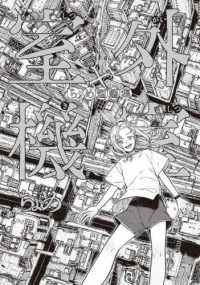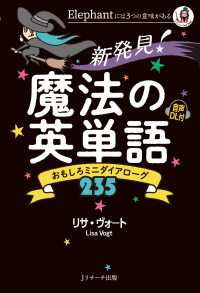- ホーム
- > 洋書
- > 英文書
- > Literary Criticism
Full Description
Johny Miranda's Jeevichirikkunavarkku Vendiyulla Oppees is an extraordinary work of literature which promises to be a critical event in contemporary Malayalam. I deliberately evoke the future tense here--for the work, though published for a while in Malayalam, is yet to be discovered fully even in Kerala. It will indeed be an interesting event, too, in the history of translation from Indian languages into English, when a truly remarkable work of writing, mostly undiscovered in the former, is elevated to the attention it deserves through a translation.
The novella presents an extremely complex and intriguing tale of the community's slow merging into the bosom of the Catholic Church through the eyes of a male member-whose most striking feature is precisely his emasculation and powerlessness. And precisely because of this, the story of this merging is presented as a dirge at its impending disappearance. But such masculinity is presented with remarkable irony-and hence this is no simple narrative of masculine angst. The pathos of fatherlessness-the other side of which is the extraordinary centrality of the mothers-emerges again and again as the central axis of the crisis, which frames the turning-point in the narrative. This is when the protagonist, a grave-digger by profession, discovers a small golden key from the cemetery, which sends him on an anguished journey in search of its lock. This masterful metaphor indicates in no uncertain terms that the novella is about an identity-for identities, especially community identities, are like keys for which locks have to be found. This anguish reaches a crescendo when the novella ends, when the protagonist's search ends in futility, and the community seems to be submerging into the Catholic Church-through its powerful women. It is hard to imagine a more honest dissection of the community's crisis-than in this confession that the angst over a community's 'true essence' is primarily a masculine one.
Contents
AUTHOR'S NOTE ; TRANSLATOR'S NOTE ; INTRODUCTION ; JEEVICHIRIKKUNAVARKKU VENDIYULLA OPPEES ; GLOSSARY ; ABOUT THE AUTHOR AND THE TRANSLATOR








